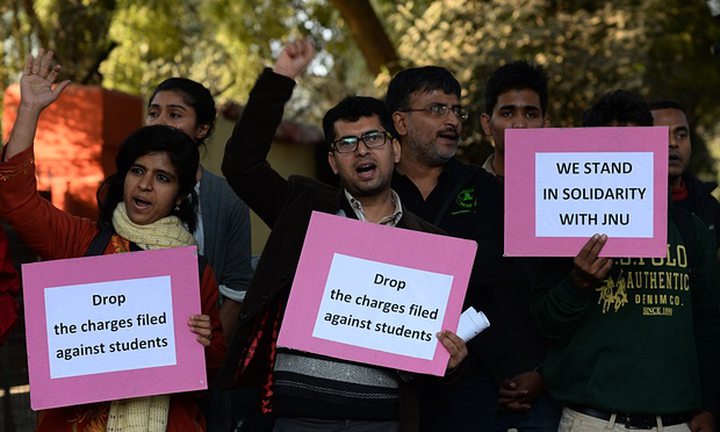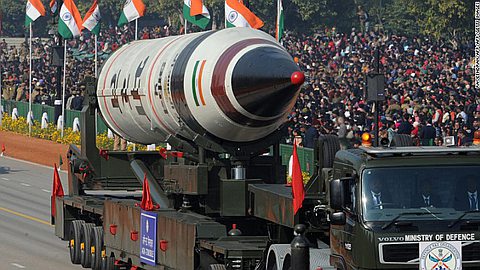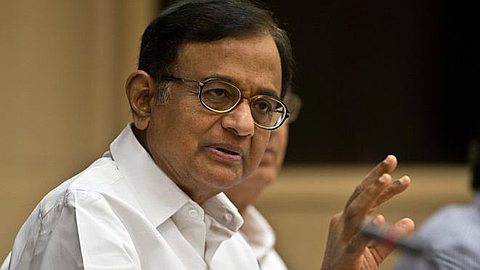Protests to Continue at Indian University After Student Leader's Arrest

Thousands of students and teachers gathered over the weekend to protest against Kanhaiya Kumar’s
Massive protests are expected to continue at one of India’s top universities following the arrest of the president of the student union on charges of sedition.
Thousands of students joined protests, effectively paralysing the prestigious Jawaharlal Nehru University (JNU) in Delhi, after Kanhaiya Kumar was arrested on Friday following a demonstration that authorities have called anti-Indian.
The demonstration was held to mark the anniversary of the 2013 execution of Afzal Guru, a Kashmiri man convicted of an attack on India’s parliament that left 10 people dead and was blamed on a Pakistan-based Islamic extremist group.
A student faction linked to the ruling Hindu nationalist Bharatiya Janata party (BJP) filed a police complaint, and Kumar was arrested following allegations that anti-Indian slogans were used at the demonstration.
Thousands of students and teachers from several universities and colleges across India held rallies over the weekend to protest against the arrest. In the southern city of Hyderabad demonstrators clashed with rightwing student activists.
Student groups have called for a strike on the sprawling JNU campus in the south of Delhi and very few people attended classes on Monday.
Supporters are planning new rallies at JNU and elsewhere. The reaction of authorities to the protests at JNU – which is well-known for its politically active student body – comes against a background of what critics say is rising intolerance in India since Narendra Modi’s BJP came to power in a landslide election 2014.
The government has repeatedly been accused of seeking to repress free speech and of encouraging extremist nationalists who systematically intimidate critics.
On Thursday, the home minister, Rajnath Singh, tweeted: “If anyone shouts anti India slogan & challenges nation’s sovereignty & integrity while living in India, they will not be tolerated or spared.”
Ugly scenes broke out outside a Delhi courtroom on Monday when Kumar was produced, as several dozen lawyers and BJP supporters attacked students and reporters.
A visibly shaken correspondent from the Indian broadcaster NDTV reported that several journalists and students were beaten, and she was threatened with physical assault as she attempted to record the violence on her phone.
The BJP supporters chanted slogans, calling the reporters and students “anti-nationals” and demanding that they leave India and go to Pakistan, the country’s Muslim-majority neighbour.
Kumar was arrested after Delhi police, who are under Singh’s authority, entered the university and searched accommodation blocks. They also demanded audio and video recordings of the demonstration in support of Guru. The student leader, who has denied making any anti-India comments, was remanded in custody for a further two days.
India’s human resource development minister, Smriti Irani, supported Kumar’s arrest, telling reporters: “The nation can never tolerate an insult to Mother India.”
Some political commenters said the arrest was an attempt by the government to silence dissent. Pratap Bhanu Mehta, the head of the Centre for Policy Research, a leading Delhi-based thinktank, said the decision to detain Kumar represents an open declaration by government that it will not tolerate any dissent.
“[The government] is using nationalism to crush constitutional patriotism, legal tyranny to crush dissent, political power to settle petty scores, and administrative power to destroy institutions … the government’s disproportionate response smacks of tyranny of the highest order,” Mehta wrote in an opinion piece over the weekend.
Academic staff at the university defended the institution’s reputation. “Isn’t it unfair to brand the university as anti-national which has stood as an epitome of academics and democratic culture? Why tarnish its image by calling it a home to anti-nationals?” they said in a statement.
Ayesha Kidwai, a professor at the university’s Centre for Linguistics, said universities should be “a place of debate and dissent”. “Ideas should compete with ideas, force and violence cannot be used to suppress ideas. Arbitrary arrests should stop and our internal mechanism should deal with [any] situations,” Kidwai told the Indian Express newspaper.
Educational, cultural and academic institutions are fast emerging as a key battleground between a broadly secular left and Hindu nationalists.
Any event linked to Pakistan or the disputed Himalayan region of Kashmir is likely to attract the attention of rightwingers.
In October Indian police were deployed to protect the launch of a book by a former foreign minister of Pakistan in Mumbai after a hardline local organisation said it would disrupt the event. The threat came only weeks after a Muslim man suspected of eating beef was lynched by a mob on the outskirts of Delhi.
Afzal Guru’s hanging is a highly emotive subject in Kashmir, which was effectively split between Pakistan and India shortly after the two states gained their independence from Britain in 1947. Many people in the Muslim-majority region believe he was not given a fair trial. There are demands for his remains, which were buried within a Delhi jail compound, to be returned to his family for proper burial in Kashmir.
More than 60,000 people are thought to have died in a bitter 27-year struggle between separatists and Islamic militants, some backed by Pakistan, and Indian state security forces in Kashmir. The region remains restive, though levels of violence are much lower now than during the peak of the brutal conflict about 15 years ago.
The latest casualties were a teenage boy and a young woman killed during a demonstration that followed the death of a local militant in a gun battle with government forces in the south of Kashmir on Sunday, officials and eyewitnesses said.
In the last 18 months there has been an increase in the number of local men – often teenagers – joining militant groups in Kashmir, local officials say.




